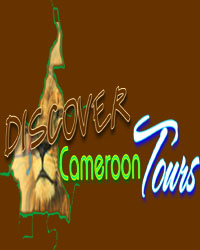

| Travel Tips & Entry Visa |
You will need an entry visa before you can enter Cameroon.
It can be obtained from any Cameroon embassy or Consulate in your country of residence. If there is no Embassy of Cameroon in your country of residence, you can obtain an entry visa from Cameroon's Embassies or Consulates in neighbouring countries which covers your country of residence. We will provide you with the police-signed invitation letter to use for your application However, if they is no Cameroonian diplomatic representation in your country of residence, then you can contact us and we will prepare an entry visa on arrival for you which you will collect at any port of entry to Cameroon. To collect your entry visa at your arrival, you will need to provide us with your passport details, a copy of your plane ticket and flight plan which we use to apply for your visa on arrival.
Everyone entering Cameroon is expected to present vaccination certificates
for yellow fever and other infectious diseases declared by the health authorities.
Though medical insurance can be purchase in Cameroon, we strongly recommend that
you get an insurance plan that will cover you while you are in Cameroon before arriving.
We also recommend that you get some preventive care for malaria before arriving Cameroon.
The Cameroon currency is the FCFA (1€ = 650 FCFA).
ATMs are numerous, especially in the cities. The most common form of payment is by cash in the local currency, though some high standards hotels and supermarkets may accept payment in Euro, US Dollar or by credit cards. Credit cards issuers usually charge a fee for oversea payment/cash withdrawal. Please, check with your bank to find out the condition that applies to you. International money transfer is widely implanted in Cameroon with operators such as Western Union and Money Gram. If you run into some difficulties, you can always have money transfered to you from your home.
The standard time in Cameroon is GMT+1.
Cameroon has a rich telecommunication network.
There are two mobile phone operators which provide a wide national coverage, and direct international dialing. The national internet coverage has improve greatly during the last few years and there are two operators offering wireless internet in addition to the two mobile phone operators. Mobile phone number in Cameroon operate only on GSM phones and it is possible to hire GSM phone upon your arrival on daily, weekly or monthly basis. There are also cheap GSM phones which you can purchase for about € 30.
Cameroon's annual average temperature is 30°C (86°F). There are
two main seasons in Cameroon; the dry and the rainy seasons. The dry
season runs from November to May and the rainy season from June to October.
Generally, Cameroon can be visited throughout the year though access to some specific areas can be difficult in some part of the rainy season.
The issue of photography is very subjective in Cameroon. Basically you do
not need permit to photograph places, buildings, except those which can be
considered to be sensitive information and may include: military zones and
installations, airports, presidential palaces, security and defence personnel,
and images likely to harm the country’s image.
The tricky part is that most cameroonian do not like to be taken in photo by strangers. It is always advisable to negociate with people likely to find theirselves in your vision, and obtain the permit wherever necessary. Remember that a good dose of politeness and kindness is usually enough.
Due to its colonialism history (the east part of Cameroon was colonized by
France while the West part was colonized by Great-Britain), Cameroon is a
bilingual country.
Cameroon is made of 10 regions, 8 of which are french-speaking and their natives are referred to as "francophones". The remaining 2 regions are english-speaking and their natives are referred to as "anglophones". However, most cameroonians speak both languages in addition to their traditional language. Still, Spanish and German are also scarcely spoken as they are taught in some classes in the secondary school and are specializations at the universites. If you do not speak English or French and you will be needing an interpreter, please, do not hesitate to inform us well in advance for appropriate measures to be taken. Cameroon is about 7 hours of flight-time from Paris which offers the most connecting flights to Cameroon. It has been reported luggage can sometimes delay. Observing that we shall some times be touring far from Douala and Yaoundé, it is advized that you keep important items in your cabin-luggage. Important items may include: drugs, toiletry, inner-wears and a few clothing. In general, every conversation in Cameroon starts with a salutation. It is expected that the person entering an office or the last person to meet a gathering greets the assembly. These types of salutations are of 3 kinds: "Good Morning", "Good Afternoon" and "Good Evening" which are extended to another person or to a gathering, in the later case, it should be loud enough for everyone to ear you, but of course, not too loud. In everyday life, there is still some form of taboo around sexuality and you may want to seek advice from a friend or your guide. |
ANNUAL EVENTS
Mount Cameroon Race Of Hope
An international sporting event up to the summit of Mount Cameroon, 4 100m above sea level, it is the second highest mountain in Africa.
Ngondo Cultural Festival
An annual event when the Duala people perform cultural and traditional rytes. The main focus been the retrieval of the sacred pot from the sea.
Bamoun Cultural Festival (Ngouon)
This event brings together the Bamoun people, it is organized once every two years. The date can not be known in advance. However it is organized in December of the even years, e.g, December 2012, December 2014, December 2016, etc.